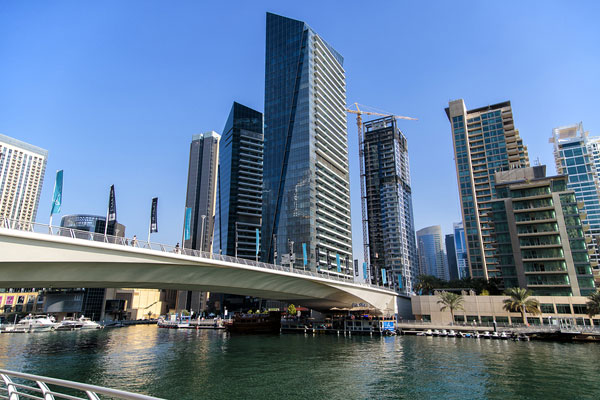
Dubai soared 44 places from last year’s position at 67.
Dubai most expensive city in region for expats
DUBAI, June 17, 2015
Dubai and Abu Dhabi in the UAE are the most expensive cities in the Middle East for expatriates, as Jeddah, Saudi Arabia continues to be the least expensive city in the region, a report said.
Dubai and Abu Dhabi have been ranked as the 23rd and 33rd most expensive cities to live in according to the 2015 Cost of Living Survey published by Mercer, a global consulting leader in health, wealth and careers.
The two cities have experienced a significant jump compared to 2014, with Dubai soaring 44 places from last year’s position at 67 and Abu Dhabi going up 35 places 68th in 2014.
Significant increase in the cost of living ranking is seen among almost all major Middle East cities, both Manama (91) and Doha (99) moved up 59 places, Amman (54) moved up 49 places, Riyadh (71) moved up 40 places, Kuwait City (117) moved up 30 places, and Beirut (44), the most expensive Middle Eastern city after Dubai and Abu Dhabi, moved up 19 places.
“Many currencies in the Middle East are pegged to the US dollar, which pushed the cities up in the ranking. Global currency fluctuations was a key factor influencing the significant changes observed in the overall raking in 2015,” said Nuno Gomes, Information Solutions leader for ME at Mercer.
“Steep increase for expatriate rental accommodations, particularly in Abu Dhabi and Dubai, has also contributed to the increase of the cities in the ranking,” added Gomes.
Although these increases in the ranking do not have a direct impact on employees currently working and living in the UAE and other countries in the region, the cost for multinationals to move staff to Middle East countries has greatly increased over the last year, potentially reducing the attractiveness of the region for such assignments. However, in the opposite direction, for regionally based companies looking to send employees overseas on work assignments, these have become potentially much more affordable.
“GCC based organizations may take this as an opportunity to increase their international assignment activity and provide greater career experiences to high potential employees,” commented Gomes.
Just as foreign exchange costs create headwinds for many multinational organizations, currency fluctuations – driven by economic and political unrest – are contributing to the cost of expatriate packages for those on the front line of globalization of their organizations. Mercer’s 21st annual Cost of Living Survey finds that factors including instability of housing markets and inflation for goods and services impacts significantly the overall cost of doing business in a global environment.
“As the global economy has become increasingly interconnected, close to 75 per cent of multinational organizations are expecting long-term expatriate assignments to remain stable or increase over the next two years to address business needs,” said Ilya Bonic, senior partner and president of Mercer’s Talent business.
“Sending employees abroad is necessary to compete in markets and for critical talent, and employers need a reliable and accurate reflection of the cost to their bottom line.”
According to Mercer’s 2015 Cost of Living Survey, Asian and European cities – particularly Hong Kong (2), Zurich (3), Singapore (4), and Geneva (5) – top the list of most expensive cities for expatriates. The costliest city for the third consecutive year is Luanda (1), the capital of Angola. Despite being recognized as a relatively inexpensive city, the cost of imported goods and safe living conditions in this country are available at a steep price.
Other cities appearing in the top 10 of Mercer’s costliest cities for expatriates are Shanghai (6), Beijing (7), and Seoul (8) in Asia; Bern (9); and N’Djamena (10). The world’s least expensive cities for expatriates, according to Mercer’s survey, are Bishkek (207), Windhoek (206), and Karachi (205).
Mercer's authoritative survey is one of the world’s most comprehensive, and is designed to help multinational companies and governments determine compensation allowances for their expatriate employees. New York is used as the base city, and all cities are compared against it. Currency movements are measured against the US dollar.
The survey includes 207 cities across five continents and measures the comparative cost of more than 200 items in each location, including housing, transportation, food, clothing, household goods, and entertainment.
“Aligning workforce and mobility strategies by ensuring the right employees are in the right places is more critical than ever to manage globalization,” said Bonic. “Properly compensating employees on international assignments is as important as it is costly.”
According to Bonic, this is especially important for emerging mobility programs with smaller pools of candidates and higher business needs for sending employees on international assignments. It is essential that these organizations have accurate and transparent data as they consider how to compensate fairly and in line with market demands. – TradeArabia News Service







